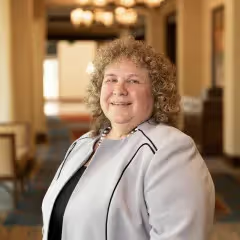Best Practices for Onboarding and Supporting Non-Certified Teachers
In today’s ever-evolving educational landscape, schools are increasingly hiring non-certified teachers to address staffing shortages and bring diverse perspectives into the classroom. While these educators bring enthusiasm and unique skills, they often lack formal teaching credentials and experience. As such, it is crucial for schools to develop robust onboarding and support systems to help uncertified teachers succeed. In this blog post, we will explore best practices for onboarding and supporting non-certified teachers, ensuring they thrive and make a positive impact on their students.

According to the Annenberg Institute at Brown University, over 163,000 teaching positions in 2022 across the U.S. were held by non-certified teachers. The Texas Tribune also reported the number of non-certified teachers in public schools in Texas rose by 29% in 2023-24. The statewide average now sits at 38% of new hires falling into this category, with a majority found in rural school districts. For Charter schools in Texas that number is sharply hirer at 60%.
Based on data from the Texas Education Agency (TEA), districts with the largest numbers of new hires have a higher percentage of economically disadvantaged students, students of color, and failing STAAR tests thus putting the students with the most need in classrooms with the least experienced teachers.
Understanding the Unique Challenges
Alternative certification routes, with little or no student teaching and pre-service clinical practice, present a challenge for non-certified teachers. These include:
- Lack of Formal Training: Teachers may not have developed pedagogical skills or classroom management techniques through traditional teacher preparation programs.
- Acclimation Hurdles: Adapting to the school culture, understanding institutional policies, and building rapport with students and colleagues can be daunting for new teachers who lack certification and pre-service experience in the classroom and on a campus.
- Resource Gaps: Varied backgrounds and differing requirements in alternative certification programs produce meaningful differences. Teachers might not have access to the same resources or support networks as their certified counterparts.
Addressing these challenges effectively requires a comprehensive approach to onboarding and ongoing support. While many alternative certification programs and apprenticeship programs teach best practices, school districts can also implement support structures to further bolster the success of these new educators.

Best Practices for Onboarding New Non-Certified Staff
Develop a Structured Onboarding Program
A well-organized onboarding program is essential for helping non-certified teachers acclimate to their new roles. Alternative certification programs and districts alike can create an effective onboarding process with the following components:
- Overview of School Policies: Provide detailed information about school policies, procedures, and expectations. This helps non-certified teachers understand the institutional framework within which they will operate.
- Introduction to Resources: Familiarize them with available teaching resources, including curriculum guides, educational technology, and classroom management tools.
- Introductions to District / Campus Resources: Learning the support network of multiple departments that support teachers eases anxiety and builds knowledge of the human capital resources available. Welcome and vital information can be shared from specific departments like Technology, Special Education, Bilingual Services, Facilities, and Human Resources.
- Mentoring and Peer Support: Assign a mentor who can offer guidance, answer questions, and provide moral support. A mentor should ideally be an experienced teacher who understands the challenges faced by non-certified educators.
- Targeted Training Throughout the Year: Offer workshops or training sessions focused on areas where non-certified teachers may need additional support, such as classroom management, lesson planning, and student engagement strategies for all new staff.
Provide Ongoing Instructional Support
Supporting non-certified teachers goes beyond the initial onboarding phase. Here are some best practices for ongoing support:
- Instructional Coaching: According to EdSource, providing dedicated and well-matched, high-quality coaches not only supports new teachers, but improves teacher preparedness and retention.
- Constructive Feedback: Offer constructive feedback on teaching practices and classroom management. Positive reinforcement and actionable advice help non-certified teachers improve and gain confidence.
- Scheduled, Regular Check-ins / Meetings: Planned regular meetings between non-certified teachers and school leaders or mentors to address challenges and provide feedback are essential for support and growth.
- Continuous Learning: Encourage ongoing professional development by providing access to online courses, webinars, and educational conferences.
- Peer Networking: Facilitate opportunities for non-certified teachers to connect with their peers. Collaborative planning sessions and informal gatherings can foster a sense of community and shared learning.
Extend Emotional and Professional Support
In addition to instructional guidance, it is crucial to address the holistic well-being of new non-certified teachers by providing both emotional and professional support.
- Emotional and Professional Support: Address the need for emotional support, including stress management techniques and work-life balance tips.
- Recognition, appreciation, and encouragement: Take the opportunity to acknowledge and demonstrate appreciation during staff meetings, individually, and during the regularly scheduled meetings. Jennifer Barton says this is one of the key factors for teachers feeling supported in their work and valued in the profession.
- Stress Management: Acknowledge the emotional challenges of teaching and provide resources for stress management and work-life balance.
- Counseling Services: Offer access to counseling or support services for teachers who may need more help coping with their role's demands.

Empowering Non-Certified Teachers
Onboarding and supporting non-certified teachers is not just about filling a gap in staffing—it's about investing in the success and growth of educators who play a crucial role in shaping students’ futures. By implementing a structured onboarding process and providing ongoing support, schools can ensure that non-certified teachers are well-equipped to thrive in their roles.
If you’re involved in educational leadership or support, consider how these best practices can be applied in your own context. By fostering a supportive environment and providing the necessary resources, we can help all teachers—certified or non-certified—succeed in their mission to educate and inspire.
Check out these additional resources for more information:
Ensure your non-certified teachers receive the support they deserve and reach their full potential. Evaluation helps you document growth, provide meaningful feedback, and track progress with ease.
>>> Click here to schedule a demo and learn more.
More Great Content
We know you'll love




